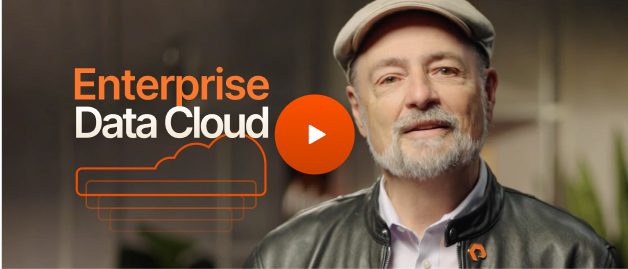A computação de usuário final (EUC, End-User Computing) é o conjunto de tecnologias, políticas e processos que fornece aos usuários acesso remoto aos dados, aplicativos e serviços necessários para trabalhar remotamente. Em resumo, a EUC permite que as organizações colham todos os benefícios do trabalho remoto, sem comprometer a segurança ou o desempenho.
Por que a computação do usuário final é importante?
A conectividade remota para redes corporativas já foi apenas uma conveniência para permitir o trabalho dos funcionários em viagem. Ela se tornou um recurso essencial para organizações que buscam aumentar a produtividade, a agilidade e a resiliência, além de oferecer aos funcionários mais flexibilidade.
Como funciona a computação do usuário final?
Na computação do usuário final, os dados e aplicativos da empresa residem na nuvem e são acessados pelos funcionários por meio da infraestrutura de desktop virtual (VDI, Virtual Desktop Infrastructure) que pode ser usada em qualquer dispositivo. Tanto a VDI quanto os aplicativos podem ser usados como serviço. A experiência proporcionada pela VDI e pelos aplicativos é padronizada para todos os funcionários, independentemente do dispositivo ou da localização.
Quais tecnologias permitem a computação do usuário final?
As seguintes tecnologias são usadas na computação do usuário final:
- A virtualização por meio de máquinas virtuais e contêineres permite que as organizações abstraam os detalhes de sua infraestrutura subjacente e implementem soluções de EUC que podem operar independentemente do hardware do usuário final.
- As arquiteturas de nuvem/híbrida oferecem às organizações mais opções de hospedagem, armazenamento e entrega de serviços.
- A VDI usa a nuvem para permitir o provisionamento e o gerenciamento de ambientes de desktop individuais em grande escala a partir de uma plataforma centralizada, acessível de qualquer lugar em qualquer dispositivo conectado à Internet. À medida que essa tecnologia amadurece, essas plataformas estão disponíveis como serviço para clientes que querem uma infraestrutura própria menor e um departamento de TI menor.
- O software baseado em nuvem, fornecido como serviço (SaaS), completa a pilha para computação do usuário final. Assim como ocorre com a VDI, colocar recursos e software na nuvem permite que os usuários finais e seus departamentos de TI façam mais com menos hardware.
Quais são os benefícios da computação de usuário final?
Alguns dos benefícios da computação para usuários finais incluem:
Mobilidade e flexibilidade. Um dos principais benefícios da computação para usuários finais é a capacidade de dar suporte a funcionários individuais, departamentos ou forças de trabalho inteiras, independentemente do local.
Segurança. Como os serviços de computação do usuário final são armazenados na nuvem e gerenciados centralmente, os dados mais sensíveis também são armazenados lá, reduzindo as vulnerabilidades associadas aos dispositivos do usuário. O gerenciamento centralizado também facilita a resposta rápida aos incidentes e o diagnóstico posterior. Desde que um processo de autenticação robusto seja mantido, uma melhor segurança é uma vantagem para a computação do usuário final.
Agilidade. A computação do usuário final oferece a capacidade de expandir e diminuir rapidamente e provisionar VDI para novos funcionários onde quer que estejam. Tão importante quanto para os departamentos de TI, a computação para usuários finais permite que as equipes de tecnologia introduzam facilmente novos aplicativos e atualizem, testem e iterem os antigos.
Custo. A computação do usuário final proporciona economia por meio do gerenciamento centralizado simplificado e da capacidade de dimensionar corretamente o provisionamento com base no uso e na necessidade reais, em vez de fazer um grande investimento inicial. Além disso, fornecer aos funcionários apenas dispositivos thin client, ou permitir que eles usem seus próprios dispositivos, proporciona economia em hardware.
Colaboração. Os benefícios da computação do usuário final para colaboração se sobrepõem aos da computação em nuvem, como compartilhamento fácil e seguro, controle simplificado de versão e a capacidade de dar suporte ao trabalho síncrono e assíncrono.
Gerenciamento de aplicativos/OS. O rastreamento e a manutenção de licenças de software podem ser complexos e demorados. A computação para usuários finais simplifica o processo desacoplando o licenciamento dos usuários finais e permitindo o gerenciamento centralizado de licenças. A computação do usuário final também alivia as empresas da carga de manter os dispositivos do usuário final em sincronia com as atualizações mais recentes do OS.
Infraestrutura avançada para computação do usuário final
Embora a EUC não seja novidade, os dados demandam que as implantações de VDI modernas nunca foram tão assustadoras. Sua organização é tão ágil quanto a infraestrutura subjacente que a suporta. Descubra como as soluções de VDI da Pure Storage podem oferecer serviços de dados abrangentes, gerenciamento simples e expansão sem esforço para oferecer uma experiência avançada de VDI.


